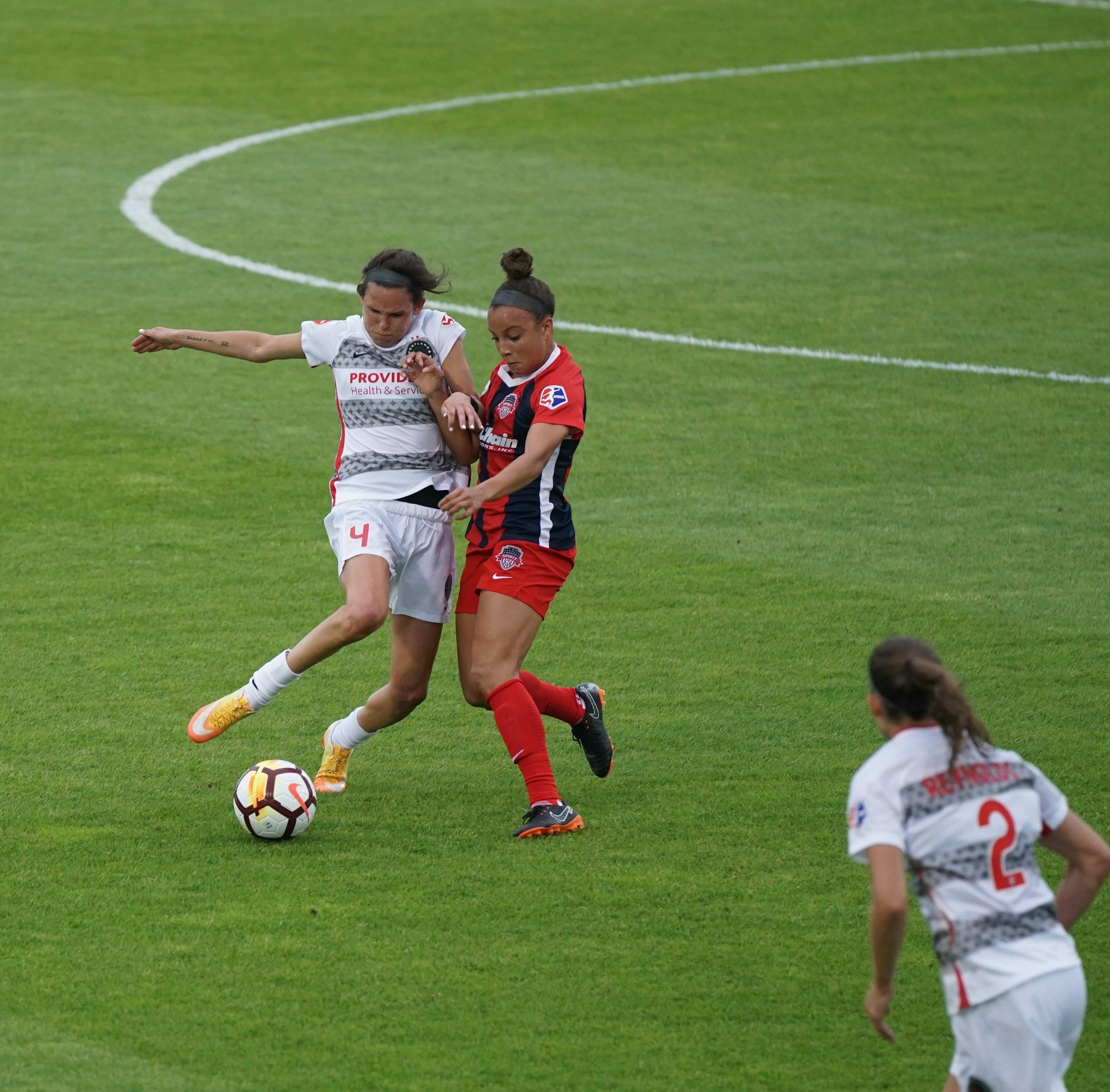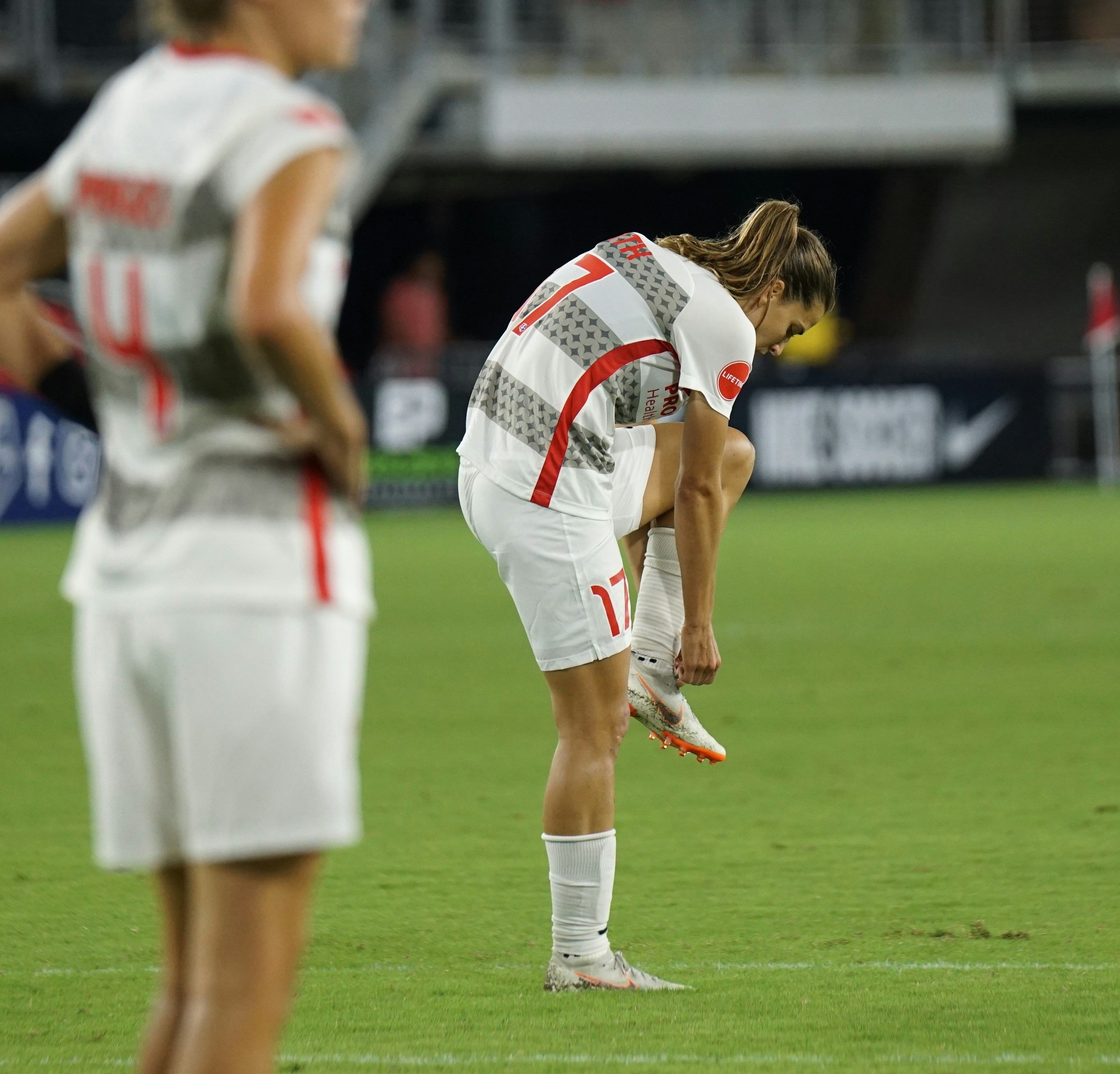Looking for a specific women’s football research topic?

Analysis of FIFA 2023 Women’s World Cup match performance according to match outcome and phase of the tournament
The aim of the study was to analyze the FIFA 2023 Women’s World Cup match performance according to match outcome and phase of the tournament.

Motivation for women’s football: a competing scales study
The purpose of this study is to compare measurement scales of sports fans’ motivations applied to women’s football.

Germany as a natural experiment for the future of women’s soccer
Applying policy feedback theory and econometric analysis, this volume explores the lasting impact of different regimes of gender discrimination on the development of women’s soccer in Germany.

The History and Process of Development of the Korean Women's Soccer : Comparison with the U.S.’s Women’s Soccer
This study did a comparative analysis of the history and development process of the Korean vs. American women's soccer.

National teams in Women’s Soccer World Cup from 1991 to 2015: participation, performance and competitiveness
The aim of this study was to analyze national teams in Women’s World Cup from 1991 to 2015 regarding their participation, performance and competitiveness.

Analysis of physical variables as an indicator of performance in a sample of Colombian women's soccer players: influence of being a starter and a non-starter
For this reason, the objective of this study was to analyze the relationship between the physical variables of Squat Jump, Counter Movement Jump, Counter Movement with arms, right leg-left leg asymmetry, hamstring strength, change of direction, and speed in 5, 10 and 15 meters as an influence of being a starter and non-starter in a Colombian youth women's soccer team.

A data-driven framing of player and team performance in U.S. Women's soccer
Because many of the issues hindering the progress of women's soccer are rooted in media and managerial practices that marginalize or ignore its positive traits, a need exists for analyses that will properly identify its innate characteristics and competitive advantages so that media members, managers, and fans can accurately frame their perceptions of women competing in the sport.

Exploring determinants of international transfers of women soccer players in Portuguese football
In this article, the author collected all transfers from the two seasons with the most records in Portugal (the 2019/2020 and 2020/2021 seasons) and analyzed transfer movements.

Impact of the Menstrual Cycle on Physical Performance and Subjective Ratings in Elite Academy Women Soccer Players
Our study aimed to combine psychological and physical factors to explore the impact of the menstrual cycle on performance in elite academy women soccer players through weekly monitoring.

Match Exposure, Consecutive Match Number, and Recovery Days Affect Match Running During International Women's Soccer Tournaments
To determine the influence of tournament-specific factors (match exposure, consecutive matches, and days between matches) on match running in women's international soccer players (footballers), 28 players from 1 national team were observed over 4 international tournaments using 10 Hz global positioning system units.

Tactics analysis and evaluation of women football team based on convolutional neural network
In order to realize the process of player feature extraction and classification from multi-frequency frame-changing football match images more quickly, and complete the tactical plan that is more conducive to the game, this paper puts forward a method for analyzing and judging the tactics of women’s football team based on Convolutional Neural Network (CNN).

‘Considering the reality, I am very lucky’: how professional players and staff perceive injury prevention and performance protection in women’s football
To explore the beliefs and perceptions of professional female footballers and staff regarding injury prevention and performance protection in professional women’s football.

A pioneering study on training attacking corners in women's football
The objective of this study was to develop a novel approach in women's football aimed at enhancing performance in attacking corners.

Enhancing ball passing creativity and effectiveness in youth women's football:A single-case study
A didactic approach known as psychokinetic games (PGs) has been developed to enhance cognitive abilities, including concentration, attention, and anticipation. Consequently, this study aimed to assess the impact of PGs on tactical creativity, passing effectiveness, and ball control in youth women's soccer players.

Analysis of peak locomotor demands in women’s football–the influence of different epoch lengths
The aim of this study was to analyse the peak locomotor demands of short time epochs (15, 30, 45, and 60 seconds) in women’s football, with special emphasis over the high-speed metrics.

A new hope? FIFA 2.0, FIFA Women’s Football Strategy, and event bidding for the 2023 FIFA Women’s World Cup
This paper interrogates the conjunctural politics of the FWWC23 competitive bid process, exploring the unique ways in which FIFA shapes, influences, and controls event bidding for the FIFA Women’s World Cup.

FIFA Women’s Football Strategy: 2018 – 2027
This links to the FIFA Women’s Football strategy for 2018-2027.

The Influence of Match Status on Ball Possession in High Performance Women’s Football
The objective of this study was to examine the effect of the situational match status variable on the ball possession of the teams that participated in the 2015 FIFA Women’s World Cup.

Performance Considerations in Women’s Football
The objective of the current systematic review was therefore to summarize existing quantitative research into the relationship between psychological factors and performance in women's football.

Beyond physical ability—predicting women’s football performance from psychological factors
The present study aimed to examine the predictive value of psychological factors on female football players’ match performance.
